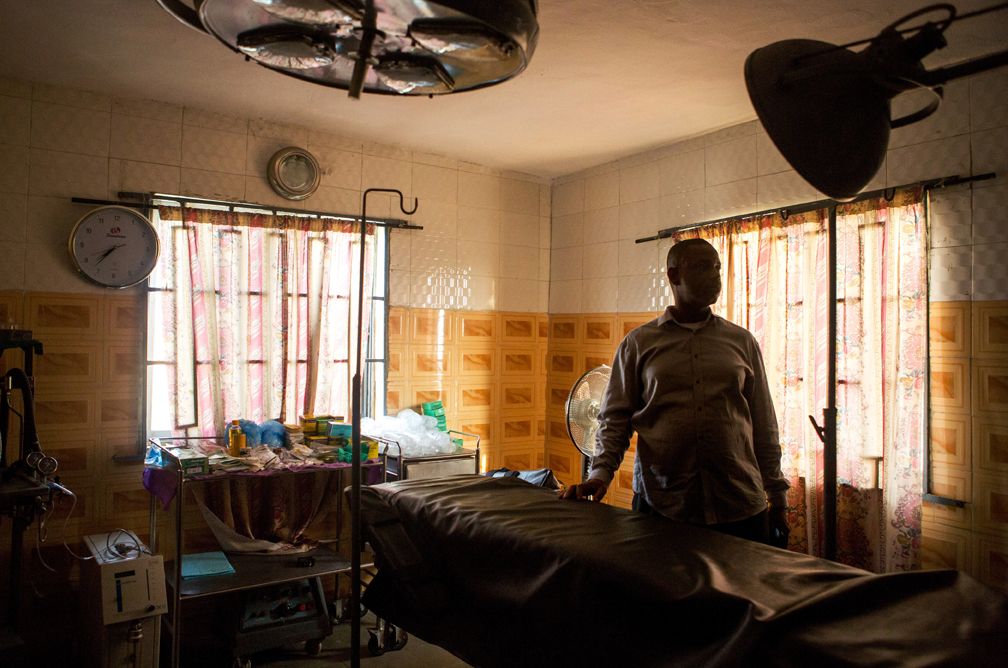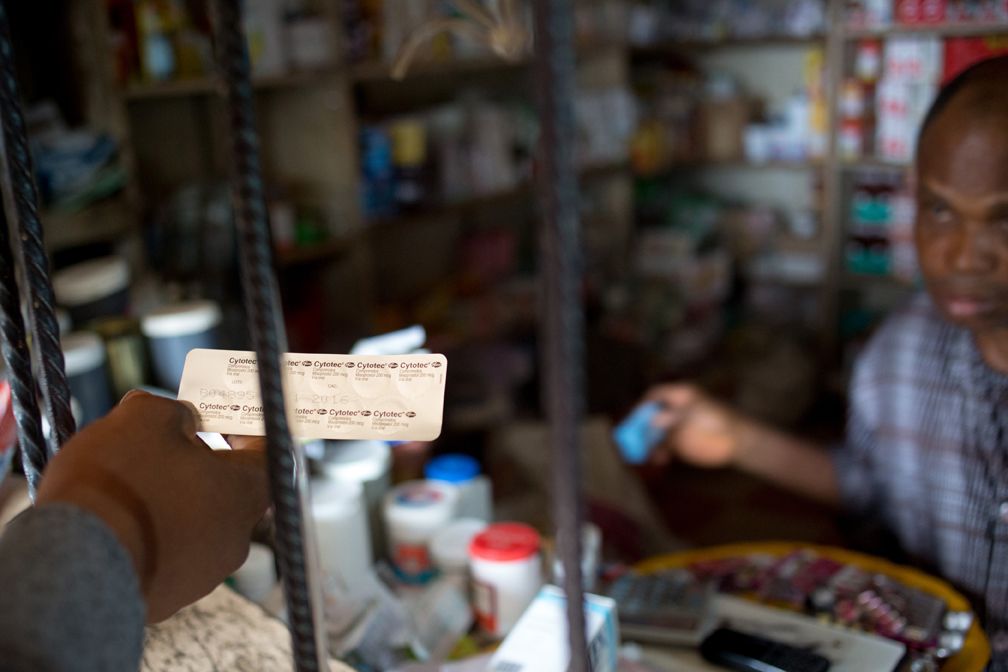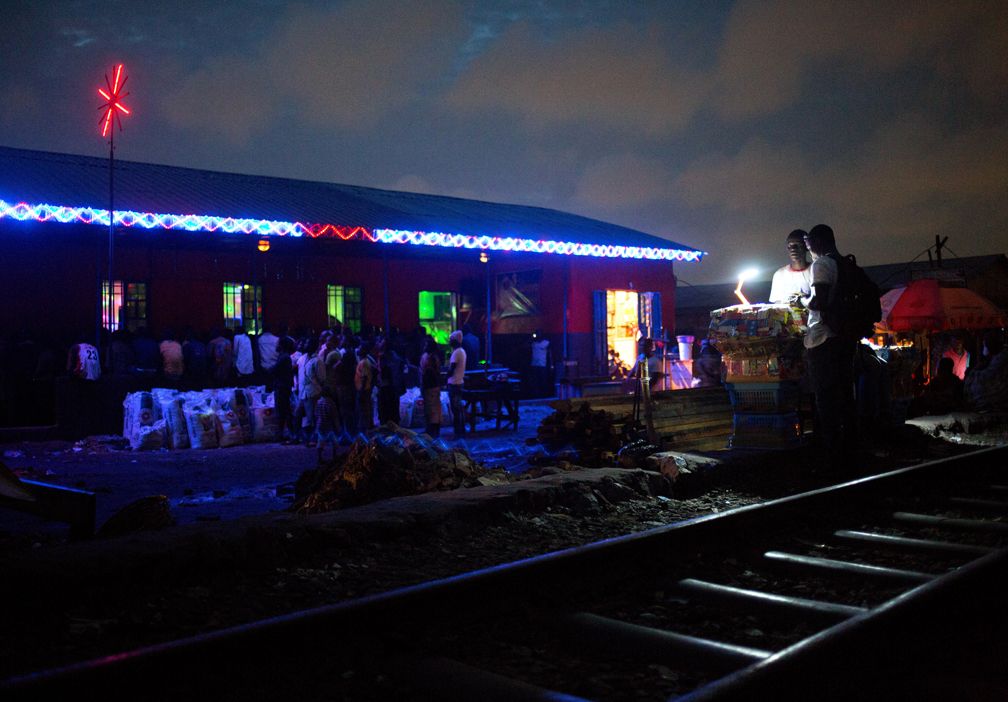LAGOS, Nigeria — At an art opening at the luxurious Eko Hotel on Victoria Island, small talk flowed with the free champagne. Fashion designers mingled with investment bankers, art collectors and a couple of dusty journalists.
“So what are you reporting on?” one university arts administrator asked. Her crisp British accent giving away her recent returnee status.
“Abortion, mostly,” I replied.
She nearly dropped her champagne as she giggled and turned away. “Wow, touchy subject,” she exclaimed.
Across Lagos, from classy hotels to crowded neighborhoods on stilts above the lagoon, the word “abortion” brought dropped voices, nervous glances and sometimes, sweaty brows. “We don’t really talk about this,” was a ubiquitous refrain.
But once we got past the initial silences, we found that while no one says it, abortion is happening all the time in Lagos, and it happens across the health care spectrum.
There are at least 760,000 abortions each year in Nigeria, according to a 2008 study by the Guttmacher Institute. Many public health professionals believe this is a drastic undercounting. In Lagos, abortions cause about half of the deaths of women during pregnancy, largely because they are performed in secret by incompetent practitioners.
“Because it is ‘illegal’, when complications arise they are hidden and they are in extremis,” said Olasurubomi Ogedengbe, a professor and consultant OB/GYN at the Lagos University Teaching Hospital.
In Nigeria abortion is legal but very restricted; it can only be done to save the life of a woman, though some states have slightly broader allowances. The law “does not give guidelines about who can do it, where it can be done, until what gestational age,” Ogedengbe said. "With that law, a butcher can do an abortion and say it was to save a woman’s life.”
Unskilled providers of all sorts are called “quacks” and are widely blamed for the high numbers of botched abortions. Some operate out of their homes or sketchy clinics; two pharmacists we encountered admitted to performing abortions in the back rooms of their shops. Certified doctors who are untrained but perform abortions are also considered quacks. Because abortion is restricted, few medical students learn how to do them, which can lead to deadly mistakes.
The price of black-market abortions varies widely; the cheapest procedures tend to be the most dangerous.
“The one person who will do it for really cheap is the quack, and he will cause the abortion complications,” Ogedengbe said.
One doctor who admitted to performing abortions in his private clinic said he charged 15,000 Naira ($93) for the procedure. A certified medical doctor, he splits his time between Lagos and Florida, and said he does not offer charity care. “Why would you expect me to care for you if you won’t pay me?” he asked.
He believes women rely on quacks because they're stingy. “It’s not hard to be in proper hands, they just don’t want to spend the money.”
In Badia, a bustling neighborhood built around train tracks, many women told a vastly different story. They paid between 2,000 and 5,000 Naira ($12 and $31) for their procedures, and most had to borrow from boyfriends or family to come up with the funds. Sixty-three percent of Nigerians live on less than one dollar per day, according to the African Development Bank.
In Lagos' open markets, illegal hawkers sell condoms, vitamins, pharmaceuticals and herbs; some provide treatments or drugs that they claim will induce abortion. Nigeria is notorious for fake drugs, and authorities have attempted to crack down on roadside medicine vendors, but the market still flourishes.
Herbalists or traditional healers also set up shop at the market and use plants to treat a wide range of ailments. Some work individually with patients, while others make batches of treatments. They walk through the market with a rainbow of liquids in recycled plastic bottles in a tub on their head. One herbal treatment combines leaves called obyolulu and itwetu with local liquor. Herbalist Cecilia Osakwe claimed that if a woman takes it twice a day for four days she would bleed like a normal menstrual period and abort her pregnancy.
Many pharmacies also sell misoprostol, a drug for post-partum hemorrhage that can also be used to induce abortion. While technically the sale of misoprostol requires a prescription, many pharmacists readily sell it over the counter.
“Ideally it is not an over-the-counter drug, but the pharmacist wants to sell, so if he doesn’t feel religiously constrained not to sell, then he will sell it to them so he can make money,” said Talemoh Dah, a gynecologist who works at Soteria-Afrique Rural, an organization based in Abuja.
Abortions happen all the time in Lagos, but behind a veil of silence. “If you don’t recognize it, everyone’s going to do it anyway, but it's going to be completely unregulated [and] because it’s unregulated some really nasty things happen,” said Richard Boustred, country director at Marie Stopes International, a women’s health organization.
The reticence to talk about abortion is not only because of the law; in fact, there have hardly been any crackdowns on illegal providers. Most of the silence stems from the country's cultural taboo, where religion—Islam and Christianity—dominates social life, and children are considered a gift from God.
“Here, people love babies, they want to make children,” explained Ngozi Iwere, one of the founders of the now-defunct Campaign Against Unwanted Pregnancy. “The debate here is ‘is it morally right for a woman to have an abortion?’ Not many people know what the law says, or care.”
The shame around abortion spreads from the women seeking the procedure to its supply chain. Some herbalists denied offering the service, though admitted they knew how; some quietly and reluctantly acknowledged that they sold it. Doctors known in their community for providing abortions claimed to have stopped, or said they only did them when women had already started the procedure elsewhere and then experienced complications.
These half-truths are woven into the veil covering Nigeria’s abortion market; hidden behind the secrets are dangerous and sometimes deadly complications.









